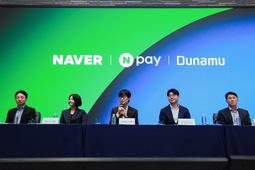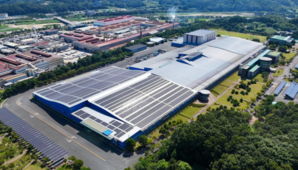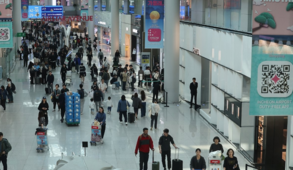
[News Space=Reporter seungwon lee] BASF Korea Co., Ltd., the Korean branch of BASF Beteiligungsgesellschaft mbH, the world's number one chemical company, reported a 0.2% decrease in sales last year compared to the previous year, but operating profit and net profit decreased by 23% and 52%, respectively.
BASF Korea is 100% owned by BASF in Germany, its headquarters, and was established on December 15, 1988 for the purpose of producing and selling chemical products.
According to the audit report of the Financial Supervisory Service's electronic disclosure system on the 28th, BASF Korea recorded sales of KRW 2.7652 trillion, operating profit of KRW 140 billion, and net profit of KRW 104.2 billion in 2024. Sales decreased by 0.2% year-on-year, but operating profit decreased by 23% and net profit decreased by 52%.
Operating profit fell from 172.8 billion won the previous year to 140 billion won, and net profit fell from 158.2 billion won the previous year to 104.2 billion won. The debt ratio rose to 58.9% from 49.7% the previous year.
Looking at the financial status in more detail, cash and cash equivalents decreased significantly to KRW 149.2 billion compared to KRW 292.4 billion the previous year.
On the other hand, accounts receivable and other receivables increased to KRW 525.4 billion, compared to KRW 456.1 billion the previous year. This could increase the possibility of liquidity deterioration and bad debts as it could lead to delays in collection of payments.
Inventory assets also increased to KRW 251.5 billion, compared to KRW 218.2 billion the previous year. This is a negative signal in that it could lead to sluggish sales or overproduction, and could result in increased inventory management costs and decreased asset turnover.
Meanwhile, BASF Korea paid dividends of KRW 181.5 billion in 2024, which is a 22.6% increase from the previous year’s KRW 148 billion. Since the German headquarters owns 100% of the shares, the amount of nearly KRW 200 billion will be paid in full to the German headquarters.
In addition, criticism is being raised about excessive dividend payments in a situation where operating profit and net income have decreased significantly.
Regarding the future outlook, a BASF Korea official said, “We have maintained stable sales despite the difficult business environment, including the global economic slowdown and rising raw material prices,” and “We will continue our efforts to reduce costs and improve profitability.”
However, it is expected that continued global economic uncertainty and increased exchange rate volatility will act as risk factors for future performance.
Meanwhile, in the ranking of the top 50 chemical companies (2024 Global Top 50) announced by 'C&EN', a chemical industry specialized media outlet published by the American Chemical Society in August 2024, BASF of Germany took first place in 2024, following 2023.
BASF, the world’s largest chemical company with sales of $74.5 billion in 2023, had a tough year, with sales down 21% and profits down 44%. In February 2024, it announced a $1.1 billion cost-cutting program that included 700 layoffs.
According to this ranking, LG Chem ranked 4th in Korea. LG Chem's previous best ranking was 7th in 2021. Among Asian companies, it is the second after China's Sinopec (2nd). Among Japanese companies, the highest ranking is Mitsubishi Chemical Group, which ranked 15th. Taiwan's Formosa Plastics ranked 9th, making it into the top 10.
A chemical industry insider said, “As seen in this audit report, BASF Korea is facing various crisis factors, which could have a negative impact on the company’s profitability, financial soundness, and viability,” adding, “Just like the situation of domestic chemical companies, an active response to changes in the global management environment is necessary in the future.”
























































